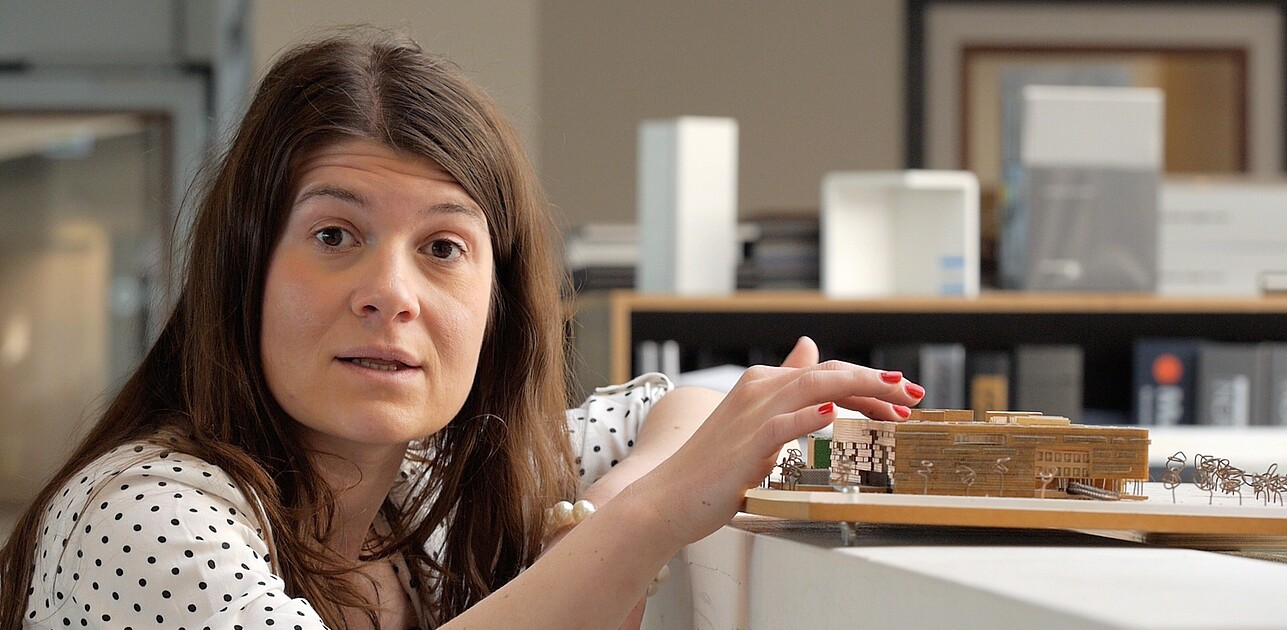

Video: Monday, 8 June 2015
Sectors at the core of innovation – such as architecture, design and the gaming industry – struggle with innovating their business models because of a lower interest in business aspects, with respect to artistic ones, and a too strong focus on customer preferences. New PhD research by Maria Rita Micheli of Rotterdam School of Management, Erasmus University (RSM) reveals companies from all sectors can learn from their mistakes. Companies can innovate their business models by not investing all of their resources in getting a central position in their networks, but instead getting a position to get relevant information to enhance the innovative process. Moreover, employees and managers’ goals have to be aligned and work together on the innovative process. This helps the company to implement long-term changes, acquire new capabilities and even re-structure the organisation for better ways of working, or for greater efficiency.
The creative sector was hit hardest during the financial crisis, and innovating business models was a matter of urgency. Yet many companies in the creative industry still do not know how to innovate themselves to make the most of business opportunities. In her dissertation Business model innovation: a journey across managers’ attention and inter – organizational networks, Maria Rita Micheli found that the creative minds of artists might be unaware of their current business model, and not interested in innovating it. Their main focus is on artistic innovation. In addition, the creative sector contains a large proportion of very small companies with small capital and managers might decide not to invest resources to spend on external consultants who could help. And lastly, there is no other industry in which customer’s reactions to the end product shape business models as much as in the creative sector. Companies might make the mistake to excessively focus on customers' requests instead of implementing their innovation plans.
By looking at mistakes made by companies in the creative sector, organisations in all other sectors can learn and do better when innovating their business models. First, they should not invest all their resources in getting a central position in the network’ is missing, says Micheli. Instead, companies should make sure they leverage on the networks to acquire the information they need to change their business model. Also, businesses should encourage employees to be eager to learn. They must keep their eyes open for new trends in the market and for opportunities to improve the business model. Finally, they have to understand that investing in these goals is worth the effort, despite the initial difficulties and negative reactions from clients.
To make business model innovation work, a company needs knowledge of its partners, familiarity with its clients, and the support of its employees; it is a journey across managers’ attention and inter-organisational networks.
Business model innovation is an emergent area of research with the potential to re-structure the pillars of strategy research. Despite the growing interest, the process of how business models change is not clearly described. In fact, only a few empirical studies explain the antecedents of business model innovation and people do not have a clear understanding of how companies combine external knowledge with internal capabilities for innovating. In addition, scholars have not been able to describe the steps that managers undertake to innovate their business models. Maria Rita Micheli’s dissertation aims at addressing these gaps.
Micheli finds that networks in which companies are embedded function as a learning environment for stimulating business model innovation. At the same time, she highlights specific network dynamics, characterising business model innovation as a different phenomenon to other innovation processes. Micheli also addresses the analysis of the business model innovation process, showing the relevance of managers’ attention. Finally, she shows the importance of managers’ goal orientation, looking at how they are influenced by environmental and organisational contingencies. These findings derive from qualitative and quantitative studies conducted in the field of creative industries.
Micheli’s dissertation has the potential to contribute to research along three dimensions: (1) shedding light on the process of business model innovation, (2) exploring the relevance of managers’ attention for business model innovation, (3) exploring the effectiveness of different business model innovation strategies.

Micheli has defended her dissertation at Erasmus University Rotterdam on Friday 12 June 2015 at 9:30 in the Forumzaal in the M Building. Her promoter is Prof. Justin Jansen and her co-promoter is Dr. Luca Berchicci Other members of the Doctoral Committee are Prof. Charles Baden – Fuller, Prof. William Ocasio, Prof. Harry Barkema, Prof. Jan van den Ende, and Prof. Taco Reus.


Science Communication and Media Officer
Rotterdam School of Management, Erasmus University (RSM) is one of Europe’s top-ranked business schools. RSM provides ground-breaking research and education furthering excellence in all aspects of management and is based in the international port city of Rotterdam – a vital nexus of business, logistics and trade. RSM’s primary focus is on developing business leaders with international careers who can become a force for positive change by carrying their innovative mindset into a sustainable future. Our first-class range of bachelor, master, MBA, PhD and executive programmes encourage them to become to become critical, creative, caring and collaborative thinkers and doers.
